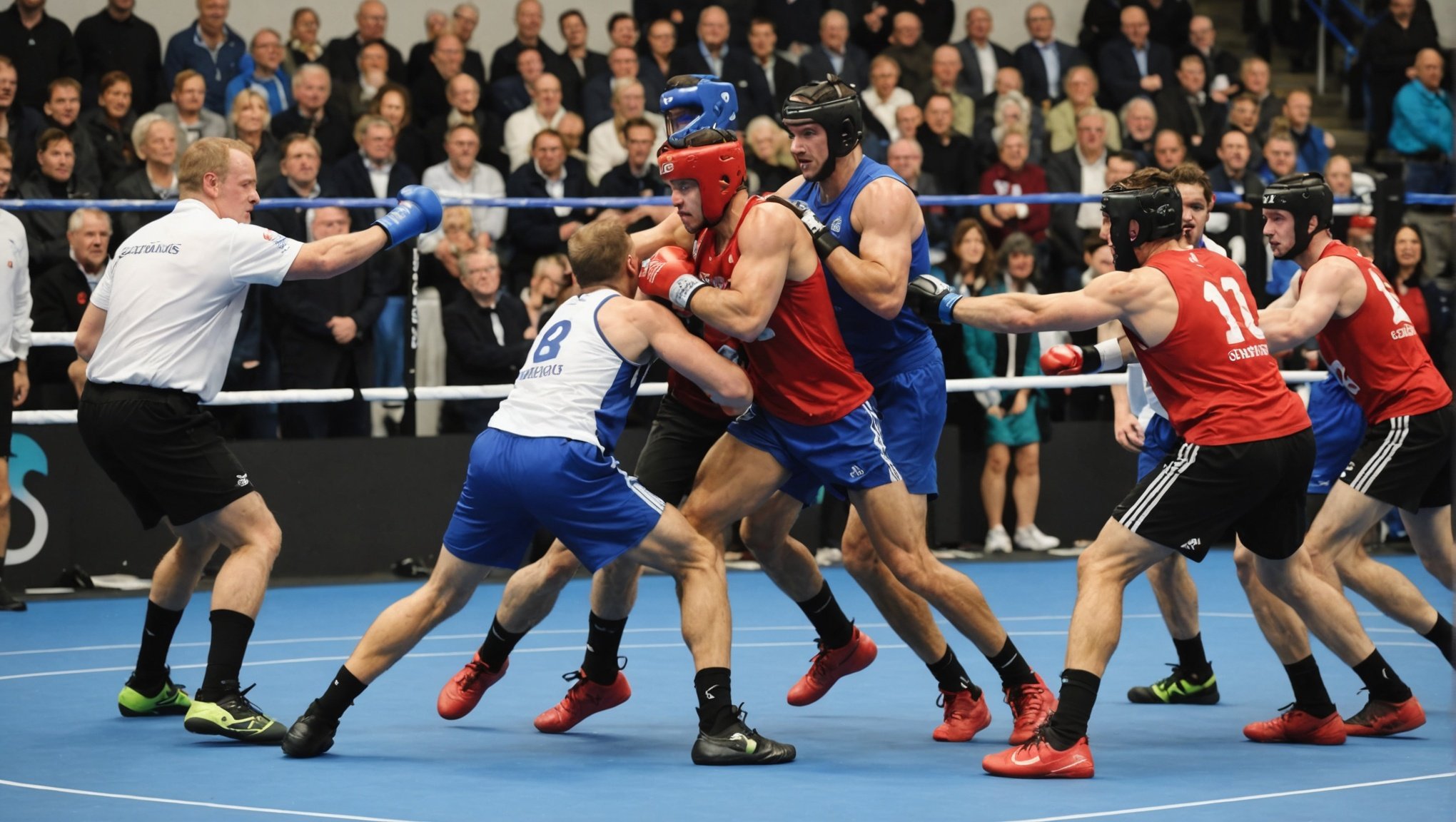Combat sports organizations in the UK are more than just training hubs; they are vital forces for community enrichment. By promoting physical fitness and social cohesion, these organizations create environments where individuals can thrive. From youth engagement to mental health benefits, the impact is profound. Discover how these organizations foster resilience, unity, and empowerment, transforming lives and communities in the process. Join us in exploring their transformative role today.
Overview of Combat Sports Organizations in the UK
Combat sports organizations in the UK encompass a wide range of disciplines, each with its own governing body. These organizations are responsible for the regulation, promotion, and development of sports such as boxing, mixed martial arts (MMA), and kickboxing. Their roles include setting rules, ensuring athlete safety, and organizing events.
In parallel : Empowering Your Child”s Journey: A Parent”s Guide to Supporting Careers in UK Combat Sports
Historically, combat sports in the UK have evolved significantly. Boxing, one of the oldest sports, saw the establishment of the British Boxing Board of Control in 1929. This body has been pivotal in maintaining standards and integrity within the sport. Similarly, MMA has gained popularity over the last few decades, with organizations like Cage Warriors playing a crucial role in its rise.
Today, the landscape of UK combat sports organizations is diverse. Each sport has its own dedicated body, such as the English Mixed Martial Arts Association (EMMAA) for MMA. These organizations work to uphold the sport's integrity, promote events, and support athletes. They also collaborate with international bodies to align with global standards.
In the same genre : Unlock Explosive Strength: A Comprehensive Guide to Plyometric Training for UK Wrestlers
Understanding the structure and function of these organizations provides insight into the vibrant world of UK combat sports, highlighting their importance in fostering talent and ensuring the safety and fairness of competitions.
Community Programs and Initiatives
Combat sports organizations in the UK are actively involved in community engagement programs. These initiatives aim to foster a connection between the sports and local communities, often focusing on youth development. For instance, the British Boxing Board of Control and Cage Warriors have implemented outreach programs that introduce young people to the discipline and values of combat sports.
Youth Engagement Initiatives
Youth engagement initiatives are crucial for nurturing talent and promoting positive life skills. Programs often include structured training sessions, mentorship, and workshops that emphasize discipline, respect, and perseverance. Such initiatives not only aim to develop future athletes but also to provide young individuals with a constructive outlet and a sense of belonging.
Partnerships with Local Schools and Community Centers
Many organizations have formed partnerships with local schools and community centers to expand their reach. These collaborations often result in the establishment of after-school programs and sports clubs, making combat sports accessible to a broader audience. By integrating combat sports into educational settings, these partnerships help in promoting physical fitness and mental well-being among students.
Through these community engagement programs, combat sports organizations play a pivotal role in shaping the future of the sport while positively impacting the communities they serve.
Social Benefits of Combat Sports
Combat sports offer a multitude of social impacts that extend beyond the ring. Engaging in these sports is not only beneficial for physical health but also fosters mental well-being and essential life skills.
Physical Health Benefits
Participation in combat sports is a powerful way to enhance physical fitness. These activities improve cardiovascular health, increase strength, and boost endurance. Regular training sessions help individuals maintain a healthy weight, improve coordination, and develop agility. Combat sports provide a comprehensive workout that engages multiple muscle groups, promoting overall health.
Mental Health Improvements
Combat sports are known to contribute positively to mental health. The structured nature of training helps reduce stress and anxiety, providing a mental release. Participants often experience increased self-esteem and confidence as they progress in their skills. The focus required during training sessions can also enhance concentration and mental clarity, offering a therapeutic respite from daily challenges.
Building Life Skills
Beyond physical and mental benefits, combat sports instill valuable life skills. Athletes learn discipline through rigorous training regimes and develop resilience by overcoming challenges. Teamwork is often emphasized, especially in disciplines that require partner drills or sparring. These sports teach respect for opponents and coaches, fostering a sense of community and belonging.
Success Stories from Local Communities
Combat sports in the UK have not only shaped athletes but also transformed lives in local communities. Through various programs, individuals have found new paths and opportunities. These community success stories underscore the impact of combat sports beyond the ring.
Case Studies of Individuals Transformed by Combat Sports
Consider the story of John, a young man from Manchester. Initially struggling with low self-esteem, John joined a local boxing club. Through dedication and training, he not only improved his physical fitness but also gained confidence. Today, John is a mentor, guiding other youths in his community.
Testimonials from Community Members
Community members frequently share heartfelt testimonials about their experiences. Sarah, a participant in an MMA program, recalls how the sport taught her resilience and discipline. "Combat sports gave me a sense of purpose," she says. Such testimonials highlight the profound personal growth fostered by these sports.
Highlighting Local Heroes and Their Contributions
Local heroes, like coach Mike from Birmingham, play pivotal roles in these success stories. Mike has dedicated years to training young athletes, many of whom have gone on to achieve national recognition. His contributions reflect the broader community impact, as he inspires both current and future generations.
Sports as a Tool for Social Change
Combat sports in the UK have emerged as powerful tools for social change, fostering cohesion and addressing pressing social issues. By engaging communities, these sports create environments where individuals can develop skills, find purpose, and connect with others.
Combat sports play a significant role in tackling social problems such as crime and unemployment. For instance, boxing and MMA clubs often provide structured activities that keep young people off the streets, reducing the likelihood of engaging in criminal activities. These sports offer pathways to employment, either as professional athletes or through roles in coaching and sports management.
When comparing combat sports to other disciplines, their impact on community development is notable. While team sports like football and rugby promote teamwork and community spirit, combat sports offer unique benefits. They focus on individual discipline and resilience, which are crucial in overcoming personal and societal challenges.
The transformative power of sports for social change is evident in the way they unite people from diverse backgrounds. By breaking down barriers and fostering mutual respect, combat sports contribute to a more cohesive society. This impact extends beyond the ring, influencing broader social dynamics and offering hope to those in need.
Challenges Faced by Combat Sports Organizations
Combat sports organizations in the UK encounter a variety of challenges that impact their growth and community engagement. One significant issue is funding and resource allocation. These organizations often struggle to secure sufficient financial support, which is crucial for maintaining facilities, organizing events, and supporting athletes. Limited resources can hinder their ability to expand programs and reach more participants.
Another challenge is overcoming negative stereotypes associated with combat sports. These sports are sometimes viewed as violent or aggressive, which can deter potential participants and sponsors. Combat sports organizations work hard to change these perceptions by emphasizing the discipline, respect, and life skills gained through participation.
Ensuring inclusivity and accessibility is also a key challenge. Organizations strive to make combat sports available to all community members, regardless of age, gender, or socioeconomic background. This involves creating programs that cater to diverse needs and removing barriers to entry, such as high costs or limited access to facilities.
Combat sports organizations continue to address these challenges by advocating for greater support, promoting the positive aspects of the sports, and implementing inclusive practices. Their efforts contribute to a more vibrant and equitable combat sports community in the UK.
Future Directions for Community Engagement
The future of combat sports in communities is set to be shaped by emerging trends that enhance engagement and inclusivity. One significant trend is the integration of technology and social media, which holds immense potential for expanding community-focused sports initiatives.
Technology can revolutionize how combat sports organizations interact with their communities. Online platforms and apps can facilitate virtual training sessions, making sports more accessible to those unable to attend in person. Social media provides a powerful tool for organizations to reach broader audiences, share success stories, and promote upcoming events. By leveraging these digital resources, organizations can foster a deeper connection with their communities.
To further expand their impact, combat sports organizations should consider several recommendations:
-
Embrace digital tools: Utilize apps and social media to engage with participants and promote events.
-
Focus on inclusivity: Design programs that cater to diverse community needs, ensuring everyone can participate.
-
Enhance partnerships: Collaborate with local schools and community centers to integrate combat sports into educational environments.
By adopting these strategies, organizations can not only sustain but also amplify their role in community development, ensuring the future of combat sports in communities remains vibrant and impactful.
Conclusion and Call to Action
Combat sports organizations in the UK have demonstrated their potential to positively impact communities. To sustain and amplify these benefits, community support is crucial. Engaging with local organizations and understanding the benefits of combat sports can lead to a more vibrant and inclusive environment.
There are several ways individuals can get involved. Volunteering at local clubs or events is an excellent way to support these initiatives. Volunteers play a vital role in organizing events, managing logistics, and supporting athletes. This involvement not only aids the organizations but also fosters a sense of community and belonging.
Another way to support is by promoting awareness of the benefits of combat sports. Sharing success stories and highlighting the positive impact on physical and mental health can help change perceptions. Encouraging friends and family to attend events or participate in programs can also broaden the reach of these sports.
Financial support is equally important. Donations or sponsorships can provide necessary resources for facilities and programs, ensuring they remain accessible to all. By taking these actions, individuals can contribute to the growth and sustainability of combat sports, ensuring they continue to serve as powerful tools for social change and community development.













